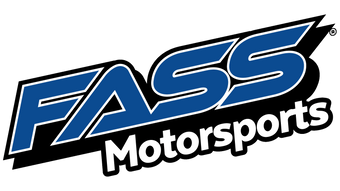If you own a truck or SUV and are thinking about modifying your suspension, you’ve probably run across two popular options: lift kits and leveling kits.
While they may seem similar at first, these upgrades are designed for different goals, budgets, and driving needs.
In this guide, we’ll break down what each kit does, their pros and cons, and how to choose the right one for your vehicle.
What is a Lift Kit?
A lift kit raises your truck or SUV’s entire body and frame farther from the ground. This modification comes in two main types:
-
Suspension Lift Kits: Replace or upgrade major suspension components (control arms, shocks, springs, crossmembers) to provide additional ride height and suspension travel.
-
Body Lift Kits: Use spacers to lift the body away from the frame without changing suspension geometry.
Typical Lift Range: 2"–8" or more
Common Reasons for a Lift Kit:
- Fit larger tires (35", 37", or bigger)
- Improve off-road ground clearance
- Give the truck an aggressive, over-the-top look
- Allow more suspension travel for serious off-roading
Pros:
- Maximum ground clearance
- Better approach/departure angles for off-road
- Head-turning, larger-than-life look
Cons:
- Higher cost (especially suspension lifts)
- May require drivetrain, steering, or brake upgrades
- Can affect ride quality and fuel economy
What is a Leveling Kit?
A leveling kit corrects the factory rake—when the front of your truck sits slightly lower than the rear. Most trucks and SUVs come this way from the factory to handle heavy loads without sagging in the back.
Leveling kits usually involve spacers or torsion keys that raise only the front suspension.
Typical Lift Range: 1"–3" (front only)
Common Reasons for a Leveling Kit:
- Eliminate nose-down factory rake
- Fit slightly larger tires (often up to 33")
- Improve stance without altering the rear height
- Cost-effective visual upgrade
Pros:
- Affordable and quick to install
- Maintains factory ride quality
- Minimal impact on suspension geometry
- Clean, custom, OEM+ look
Cons:
- Doesn’t increase ground clearance under the rear
- Limited tire size increase compared to full lift kits
- More understated than a full lift kit (could also be a pro, depending on your preference)
Lift Kit vs. Leveling Kit: Key Differences
|
Feature |
Lift Kit |
Leveling Kit |
|
Lift Height |
2"–8"+ front & rear |
1"–3" front only |
|
Cost |
Higher (suspension lift can be $$$) |
Budget-friendly |
|
Tire Size Potential |
35"–40"+ |
33" (varies by model) |
|
Purpose |
Ground clearance, tire clearance, stance |
Corrects rake, mild tire clearance |
|
Installation Time |
Several hours to full day |
1–3 hours |
Which One is Right for You?
Ask yourself these questions:
- Do you want to run 35”+ tires or go serious off-road? → Go with a lift kit.
- Do you just want to get rid of the factory rake and fit slightly bigger tires? → A leveling kit will do the job.
- Is budget a concern? → Leveling kits are far more affordable.
- Do you care about daily driving comfort and fuel economy? → Leveling kits change less about the truck’s driving dynamics.
Final Thoughts
Whether you choose a lift kit or a leveling kit, both can dramatically improve the look and functionality of your truck or SUV. The right choice comes down to your driving needs, budget, and style goals.
If you’re not sure what you need? Give us a shout!
Here at FASS Motorsports, our team of suspension gurus is ready to answer questions, make product recommendations, and even tackle the installation if you like. You can reach us by phone at (636) 429-7020, via email at info@fassmotorsports.com, or swing by our showroom—located at:
FASS Motorsports
25 Town and Country Drive
Washington, MO 63090

